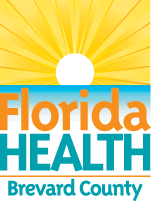It's a New Day in Public Health.
The Florida Department of Health works to protect, promote, and improve the health of all people in Florida through integrated state, county, and community efforts.
Evacuate or Stay at Home?
Emergency Preparedness
- 321-690-6488
-
Mailing Address
2565 Judge Fran Jamieson Way
Viera, FL 32940
Do you live in a mobile home, an area that floods frequently, on a barrier island or near the coast? Have you been ordered to evacuate? If you answered yes to any of these questions, then you should evacuate. If you answered no, you must still be prepared for a storm or other emergency.
Evacuate
- Assemble your disaster supply kit.
- Have a place to go-home of a family member or friend, motel or shelter. Do not get on the road without a place to go.
- Notify family or friends of your plans-when you are leaving and where you are going.
- Fill your car with gasoline.
- Bring extra cash-banks may be closed, ATMs may not work.
- Enact your pet plan.
- Bring your disaster supply kit, including important documents.
- Secure your home before leaving-board up windows and glass doors, anchor loose yard objects or bring them inside and lock your doors. Unplug appliances, turn off natural gas, propane, water, and electricity if instructed to do so.
- Map out your route-be familiar with your area's evacuation route.
- Arrive safely at your destination-drive with courtesy, traffic will be heavy.
- Listen to local officials for the "all clear" before returning to the area.
Stay at Home
- Stay alert to storm advisories-Know the difference between a "watch" and "warning".
- Find the safe and unsafe areas in your home.
- Assemble your disaster supply kit. Put in designated safe place.
- Enact your pet plan.
- Stock extra supplies-batteries, water, and canned food.
- Secure your home-board up windows and secure loose yard objects.
- Fill your car with gasoline.
- Get extra cash-following a hurricane, banks and ATMs may be temporarily closed.
- Check on your neighbors-particularly the elderly or disabled.
- Do not use candles or open flames as a light source.
- As the storm hits, gather your family in a safe room (an interior room with no windows).
- Following the storm, watch out for downed power lines.
- Listen to your local officials.
*Note: This page contains materials in the Portable Document Format (PDF). The free Adobe Reader may be required to view these files.




Connect with DOH